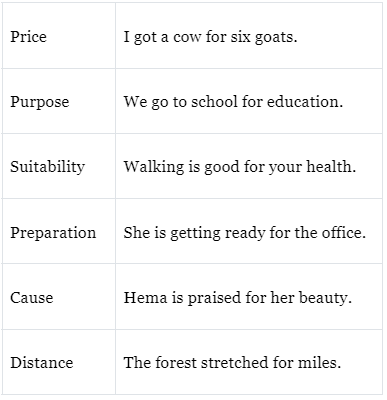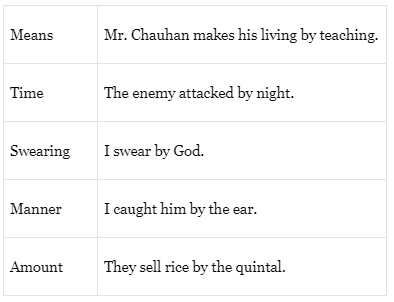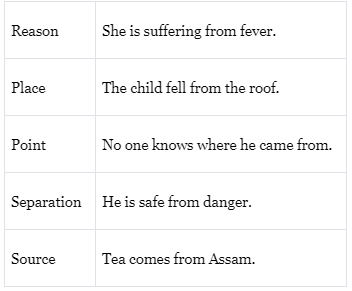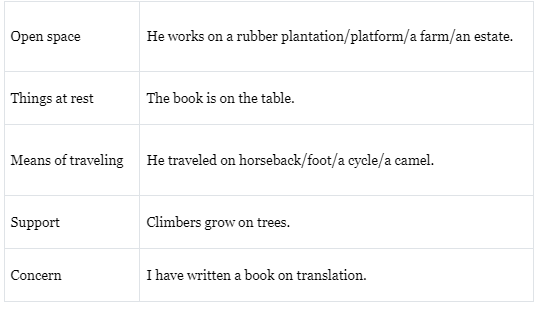Class 7 Exam > Class 7 Notes > English Grammar Class 7 > The Preposition
The Preposition | English Grammar Class 7 PDF Download
Use of Prepositions “For”

Use of “for” as Definite length of time
For four days/months/years/a long time/several days/so many days/a short time/a little while/how long etc. I have lived in this house for two years. For how long had he been absent from duty?
Use of Prepositions “By”

Use of Prepositions “From”

Use of Prepositions “on”
To indicate specific day and date; part of certain days and dates – on Christmas evening, on Sunday morning / evening / on the morning of the 15th, on the night of June 22, 2020.
The document The Preposition | English Grammar Class 7 is a part of the Class 7 Course English Grammar Class 7.
All you need of Class 7 at this link: Class 7
|
39 videos|288 docs|61 tests
|
FAQs on The Preposition - English Grammar Class 7
| 1. What is the importance of prepositions in the English language? |  |
Ans. Prepositions play a crucial role in the English language by indicating relationships between different words in a sentence. They help convey the position, direction, time, and manner of an action or object. Without prepositions, sentences may lack clarity and coherence.
| 2. Can you provide some common examples of prepositions used in everyday language? |  |
Ans. Certainly! Some frequently used prepositions in everyday language include "in," "on," "at," "by," "for," "to," "from," "with," and "about." For instance, we say "in the park," "on the table," "at the office," "by the river," "for my friend," "to the store," "from the airport," "with a pen," and "about the book."
| 3. How can prepositions change the meaning of a sentence? |  |
Ans. Prepositions have the power to alter the meaning of a sentence by indicating different relationships between words. For example, consider the sentence "She is sitting at the table." If we replace "at" with "on," the meaning changes to "She is sitting on the table." Similarly, changing the preposition from "by" to "with" in the sentence "He solved the problem by himself" changes the meaning to "He solved the problem with himself."
| 4. Are there any fixed rules for using prepositions in English? |  |
Ans. While there are some general guidelines for using prepositions, it's important to note that prepositions can be quite flexible and their usage often depends on context. There are certain idiomatic expressions and collocations where specific prepositions must be used. Additionally, prepositions can vary based on regional and cultural differences. It is best to consult grammar resources or style guides for specific rules and usage examples.
| 5. How can I improve my understanding and usage of prepositions? |  |
Ans. Improving your understanding and usage of prepositions requires practice and exposure to the language. Reading extensively, listening to native speakers, and engaging in conversations will help you become more familiar with their usage. Additionally, studying grammar resources and completing exercises that focus on prepositions will enhance your understanding. Consider seeking feedback from language experts or instructors to further refine your skills.
Related Searches
















